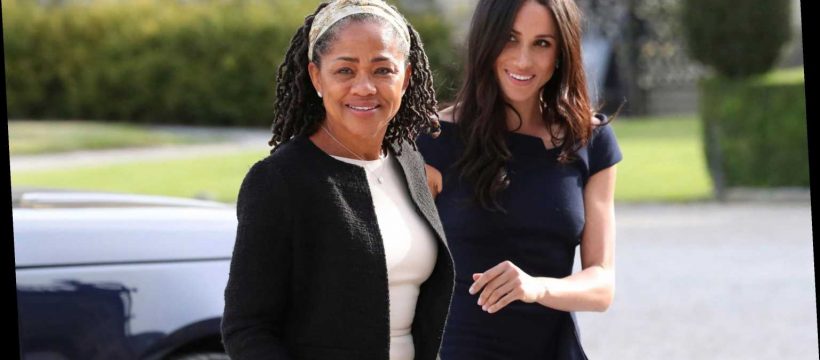“You would not be able to discern just by looking at Meghan Markle that she’s Black.”
That’s what conservative commentator Candace Owens said after Duchess Meghan and Prince Harry’s explosive interview with Oprah Winfrey, suggesting that Meghan is lying about her experience because she’s not Black enough to be a victim of racism.
This narrative creates a never-ending conundrum that can affect a Black person’s sense of self and identity: When you’re “too Black” for some and not “Black enough” for others.
Although Meghan defines herself as “half black and half white,” the royal family and her critics can apparently only see one thing: Meghan’s Blackness or lack thereof.
“You came in as the first mixed-race person to marry into the (royal) family, and did that concern you in being able to fit in?” Winfrey asked Meghan Sunday. Meghan responded: “I thought about it because they made me think about it.”
‘I didn’t want to be alive anymore’:Duchess Meghan opens up in Oprah interview
Owens’ controversial remarks and others like them invalidate the racist treatment Meghan has endured – allegedly from the British monarchy and definitively by the U.K. press – and border on denying her existence as a biracial woman with a Black mother and white father.
Questioning someone’s Blackness based on the color of their skin as a way to downplay their experience with racial discrimination is deeply troubling. Here’s why.
Meghan Markle with her mother, Doria Ragland, at Cliveden House Hotel, in Berkshire, England, the night before her wedding to Prince Harry on May 19, 2018. (Photo: Steve Parsons/Pool via AP)
Black people are not a monolith. There is no cookie-cutter prototype of what a Black person is supposed to look or act like, and that holds true for mixed race people. Black people come in a wide-ranging spectrum of shades and skin tones, including fair skinned Meghan.
Although colorism exists and lighter complexioned people often receive preferential treatment compared to their darker-skinned counterparts, skin color is not an indicator of Blackness. And it certainly doesn’t negate the fact that Meghan has been subjected to bigotry.
Whether someone is 100% Black or 25%, Blackness can be viewed as a threat to the status quo, as evidenced by Meghan’s decision to not “live my life in fear” and flee to America with her family, even though many people believe she’s fair skinned enough to “pass” as white.
Even 1-year-old Archie isn’t safe from microaggressions. Meghan said unnamed palace officials had raised questions about the baby’s possible “skin color” and how “dark” he might be. (The couple are expecting their second child, a baby girl this summer.)
It’s a girl:Harry and Meghan reveal baby’s gender
Race & royalty don’t mix:The British royal family wasn’t ready for Meghan and Archie
“If you’ve seen a picture of Archie and you believe that he has suffered anti-Black racism then I’m a Nigerian prince and give me your credit card details. It’s so ridiculous,” Owens said during an interview with Fox News’ Sean Hannity Wednesday.
Well, he has, according to his mom. Meghan told Winfrey Sunday that she and Harry did not choose to forgo a title for baby Archie, the first mixed-race royal since Queen Charlotte sat on the throne in the 1800s. She said she was told that the rules prevented it, not-so-subtly suggesting that her then-unborn child’s skin color may have had something to do with it.
Questioning someone’s personal experience with racism based on their skin tone minimizes their struggles and ignores their pain, instead of challenging responsible parties to question their own biased thoughts or attitudes that contribute to intolerance.
As a Black woman who grew up in a majority white city, I speak from personal experience. At school, I was “too Black” for some students in my community, but when I visited family members in other areas, I was teased for “talking white.”
It’s a confounding grey area that Duchess Meghan – a Los Angeles native, who was stereotypically referred to as an “(almost) straight outta Compton” girl from a “gang-scarred home of her mother” in a 2016 Daily Mail headline – can surely relateto.
But who is to judge? Who determines if someone is “Black enough” or if someone is susceptible to racism? It’s not up society to strip an individual of their identity and experiences, and surely not Owens, who has a long history of making incendiary remarks. (Remember Owens’ diss of Harry Styles ballgown “Vogue” cover?)
Race is not a convenience – something that you can turn on when it serves you and power down when you don’t. So let’s stop questioning whether someone is “Black enough” to warrant racism and listen to what Meghan has the courage to say.
‘Bring back manly men’: Harry Styles responds to criticism over ‘Vogue’ coverballgown
Some people don’t believe Meghan was suicidal.Why that’s so dangerous.
Source: Read Full Article

